Former Hostage Harmeet Sooden Returns To Iraq - Q&A
Former Hostage Harmeet Sooden Returns To
Iraq
Questions and Answers
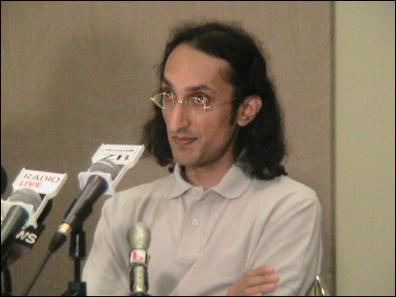
Harmeet Sooden at a press
conference following his release in June 2003 - Image Yasmine Ryan -
Scoop.co.nz
See also....
Christian Peacemaker Teams
Press Release -
Ex-Hostage
Returning to Iraq amid Current
Crisis
QUESTIONS:
Q: Why are you going back to Iraq, given you were taken hostage there?
Q: What do you hope to accomplish?
Q: Aren’t you afraid at all about going back?
Q: The New Zealand Government advises citizens against all travel to Iraq – isn’t it too dangerous to go to Iraq?
Q: What does your family think of you going to Iraq?
Q: What are your concerns about NZ’s military involvement in Iraq?
Q: What, then, do you think are NZ’s reasons for military involvement in Iraq?
Q: Realistically, what do you think NZ should be doing?
Q: What do New Zealanders think about the deployment?
Q: What can New Zealanders do to support alternatives?
Q: Some might say you are ‘anti-New Zealand’ – how do you feel about that?
Q: What does CPT do?
Q: Is CPT a Christian missionary organisation?
Q: Won’t your actions endanger the lives of troops who might have to free you if you get kidnapped?
Q: How do you see your kidnapping now, almost 10 years later?
Q: Who kidnapped you?
Q: How were you freed from captivity?
Q: What is your background?
Q: Why are you going back to Iraq, given you were taken hostage there?
A: In part, my motivation comes from my personal history, having friends and family who have lost much to war. My great-grandfather was a soldier in the British Indian Army and died in Mesopotamia in 1916 during WWI. We lost a great many relatives to ethnic cleansing in the first Indo-Pakistani war, and my parents were married in the middle of the third Indo-Pakistani war. When I was a child growing up in Zambia, South African forces would often conduct commando raids in Zambian territory, killing innocent civilians. A friend of mine survived the 9-11 attacks, and a classmate, Maher Arar, was a victim of the US’s extraordinary rendition programme and tortured.
In part, my motivation comes from a personal sense of moral responsibility for the consequences of my past actions. I used to work for Cubic Defence New Zealand, a US-owned defence contractor that supplies infantry training and simulation equipment to the armed forces of various countries. Many of these countries are major human rights violators and currently engaged in the conflict in Iraq. As an NZ citizen, I also feel I have some responsibility for the actions of my country. NZ foreign policy, especially when aligned with US foreign policy, can adversely affect millions of people throughout the world and greatly increase the chance of large-scale conflict.
I think NZ foreign policy has been especially harmful to the people of Iraq as a whole. Working with an NGO like Christian Peacemaker Teams (CPT) gives me the chance to use my resources and abilities to address the harmful aspects of NZ foreign policy and persuade our Government to reflect our values overseas by publicising those harmful aspects.
Q: What do you hope to accomplish?
A: I will be working on a CPT project that supports a network of local NGOs, government bodies and communities working to ameliorate the effects of the humanitarian crisis and worsening economic situation on Iraqi Kurds, Syrian refugees and internally displaced persons in Iraqi Kurdistan. CPT seeks to give particular attention to the needs of women and children, build networks and diffuse community tensions. The specific areas where I can contribute are: needs assessment, documenting the human rights situation, and research.
In NZ, I hope to raise public awareness about what measures NZ could take that would likely serve the interests of the people in the region.
Q: Aren’t you afraid at all about going back?
A: Even though this will be my third time in Iraq with CPT (the second time since the kidnapping), the decision to volunteer wasn’t easy. The kidnapping was a profoundly painful experience. The risk of being kidnapped or killed in Iraqi Kurdistan is low. Even so, I can’t avoid feeling some apprehension as the conflict unfolds. But I have to do what feels right when my country goes to war again, knowing that its actions might make life worse for people in Iraq.
Q: The New Zealand Government advises citizens against all travel to Iraq – isn’t it too dangerous to go to Iraq?
A: CPT’s Iraq project is based in the semi-autonomous region of Iraq under the control of the Kurdistan Regional Government (KRG), referred to as Iraqi Kurdistan. Currently, the security situation in this area is better than the rest of Iraq, especially for foreigners. However, Iraqi Kurdistan is vulnerable to the effects of both internal tensions and regional instability. Insurgent groups led by ISIS continue to launch offensives into Kurdish territory. While there is currently no evidence of ISIS kidnapping cells in Iraqi Kurdistan and the number of Kurds joining ISIS is very low, [1] there have been bombings in urban centres, which ISIS has claimed responsibility for. [2] Border areas with Turkey and Iran continue to be volatile.
CPT workers are trained to carry out human rights work under such conditions, with the highest regard for professionalism and safety. CPT in Iraq has stringent security protocols in place, and continues to monitor and assess the security situation in collaboration with its Kurdish partner organisations. To date, no CPT personnel have been kidnapped in areas under KRG control.
At present, it is unclear whether the NZDF deployment to Iraq will increase the security risk for NZers working in Iraqi Kurdistan.
Q: What does your family think of you going to Iraq?
A: My friends and family are naturally concerned for my wellbeing, but understand and my respect my decision.
Q: What are your concerns about NZ’s military involvement in Iraq?
A: I am not opposed to the use of force, on principle. I support NZ Government policy that is likely to help the people in the region, but I am opposed to policy that is likely to end up harming them.
UK, then US policies of the past 100 years have had a detrimental effect on Iraqi society. The illegal US-led invasion of Iraq in 2003, and ensuing occupation – supported in part by New Zealand , [3,4] – incited the sectarian conflict that is now destabilising Iraq and spreading throughout the region. ISIS itself has its origins in the conditions created in large part by the US and its allies.
NZ has bolstered its contribution to the US-led coalition through a commitment to deploy the NZDF to Iraq to train the Iraqi army in fighting ISIS, signalling an official shift from a non-military NZ role to a military one. As part of this mission, a number of NZDF personnel are to work alongside Australian forces. [5] The coalition member’s military operations are lawful so long as they remain within the remit of the Iraqi Government – a government that is increasingly at risk of becoming more polarised along sectarian lines. [6] Many of the major contributors to the coalition have poor human rights records and some have been implicated in serious human rights violations in Iraq that continue to the present.
The Australian Special Forces, for example, have been working directly with the Iraqi Counter-Terrorism Service (CTS), a CIA-supported “elite Iraqi security force accused of killing prisoners and other human rights violations,” , [7,8] including “torturing detainees with impunity” [9] at a secret detention facility in Baghdad. Amnesty International has accused the Iraqi Government and government-backed militias of committing war crimes, [10] a concern shared by the UN. [11] They have been implicated in ethnic cleansing in areas reclaimed from ISIS [12] and establishing ‘killing zones’ around Baghdad. [13] Furthermore the new government of Iraq appears to be becoming less inclusive than its predecessors.
US-organised airstrikes in Iraq are also resulting in civilian deaths, [14] which are potential war crimes. [15] The organisation Iraq Body Count (IBC) has concluded, “The rise of [ISIS] as a major force in the conflict, as well as the military responses by the Iraqi Government and the re-entry of US and Coalition air forces into the conflict, have all contributed to the elevated death tolls” [16] in Iraq for the year 2014. The US-led coalition’s “sledgehammer” strategy is likely to exacerbate sectarian tensions and further entrench ISIS in parts of Iraqi society.
Under such circumstances, NZ’s actions, including military training, could very well contribute to the increase in the level of violence in the region and worsening of the humanitarian crisis.
The military support role NZ’s intelligence services are playing in the region remains secret, and therefore beyond public scrutiny.
Q: What, then, do you think are NZ’s reasons for military involvement in Iraq?
A: Contrary to the Government’s public pronouncements, policy documents indicate its rationale for military intervention derives mainly from NZ’s national security interests, not necessarily what is in the best interests of the people of Iraq and Syria, or even New Zealanders.
NZ has a long history of a military presence in the Middle East, a region of global strategic importance. NZ’s policy towards the Middle East is primarily focused on the “stability of the region”, in other words the security of NZ’s “significant economic and trading interests in the region and access to energy supplies and petrochemicals at affordable prices”. NZ has wider foreign policy goals of preserving the global economic and political order, upon which the West relies. Thus, NZ also seeks to strengthen its “international linkages...with like-minded states” and maintain its “security credentials”. NZ’s international partnerships “amplify New Zealand’s reach and influence”, but “also bring with them expectations [of] being willing to play [a] part to advance shared security objectives.”
Accordingly, NZ and the “like-minded states” are unwilling to see an independent force develop in the Middle East that has regional influence and control over substantial oil reserves. As ISIS largely operates outside the purview of the US-managed global system, it poses a threat to the national security interests of NZ and “like-minded states”.
Contributing to international military operations is one instrument of foreign policy that NZ employs to maintain and enhance its national security interests. From an NZ perspective, “[t]he success of most major international military coalitions...depend on US involvement”, because the US is world’s foremost military and economic power.
The NZ Government would likely have determined the military component of the US-led coalition as being suited to mitigating the security threat posed by ISIS while ensuring suitably “like-minded” regimes emerge in the region. It would also have determined that, through its limited military contribution, it could best pursue NZ’s national security interests.
Q: Realistically, what do you think NZ should be doing?
A: The Government has not provided an adequate explanation of how an NZDF deployment of any kind to Iraq would be beneficial for the people of Iraq as a whole. If NZ were serious about addressing the security and humanitarian crisis facing the people of the region, it would work independently of a US-led coalition – effectively a military coalition – that prioritises the indiscriminate use of force.
As a “responsible international citizen” and member of the UN Security Council (UNSC), NZ should appeal to the UNSC to declare ISIS a threat to international peace and security, and mandate the appropriate response, including any military option. A UNSC resolution to that effect may lead to a more reasonable response to the ISIS threat through an inclusive UN-organised effort, in effect tempering the “sledgehammer” approach of the US and its allies.
NZ should take a forthright stand in opposing US-backed crimes, while acting in a manner consistent with existing UNSC resolutions and international law by: blocking support for ISIS’s war-fighting capability; increasing humanitarian aid to NGOs working in the region; and supporting good faith multilateral diplomatic initiatives to address the root causes of the conflict. The head of the United Nations Assistance Mission in Iraq (UNAMI) has stated “there is ‘general agreement,’ not just in the UN but in Iraq as well, that the security element of dealing with [ISIS] is [just] one part of the solution...to the problems facing the country”, but “an inclusive political process [is] vital to finding comprehensive solutions”. [17]
Though far from ideal, this range of alternative measures is far more likely to serve the interests of the populations of the region.
Q: What do New Zealanders think about the deployment?
A: A 3News poll suggests NZers are divided over “sending Kiwi troops in a non-combat training role to Iraq to help the fight against” [18] ISIS. 50% of respondents agreed, 45% disagreed and the rest did not know. 73% believed committing troops would put New Zealand at greater risk of a terrorist attack. Recent polls have similar results. [19] Parliament is also divided on the issue. [20]
The Government has withheld virtually all official information relating to the deployment, mainly on the grounds of protecting NZ’s national security and international relations. Even so, I think most NZers would oppose the deployment and support the alternatives if those facts already in the public domain were made available to them.
Q: What can New Zealanders do to support alternatives?
A: I would encourage NZers to draw their own conclusions from the facts and make their views known to the Government. This act alone could persuade the Government to limit the duration of the deployment and implement alternatives.
Q: Some might say you are ‘anti-New Zealand’ – how do you feel about that?
A: I’m trying to fulfil my obligations as a citizen of this country and uphold the values that make it a good place to live. Espousing democratic principles sometimes demands adopting a position that is critical of state policy.
Q: What does CPT do?
A: CPT is an international NGO that was established in 1988 to protect human rights and promote conflict resolution in conflict zones around the world. It is composed of approximately 230 trained human rights workers and has a larger number of affiliates. CPT has had a presence in Iraq since October 2002 at the behest of local NGOs – first in Baghdad and then, following our kidnapping, in the Kurdish north. It is a small but important part of a large non-violent movement in Iraq.
CPT’s work with detainees has been commended by organisations it liaises with, including the United Nations Assistance Mission to Iraq (UNAMI) and the International Committee of the Red Cross. [21] Seymour Hersh, a noted investigative journalist, who helped expose the Abu Ghraib torture and prisoner abuse scandal in 2004, has acknowledged the work of CPT in his articles. [22] In an interview during our captivity, he said, “[M]ost of the things that I ended up writing about in Abu Ghraib, most of the general concepts, they knew a great deal about earlier.” [23]
Currently, CPT has four main projects in Iraqi Kurdistan: addressing the impact of the humanitarian crisis on Syrian refugees, internally displaced persons and Iraqi Kurds; addressing the impact of foreign energy corporations on Kurdish communities; providing training in non-violent conflict resolution to local human rights groups; and general human rights advocacy.
Q: Is CPT a Christian missionary organisation?
A: No, CPT is a human rights organisation and does not proselytise. It has its historical roots in the peace churches of North America. Not all of its members are Christian. I have secular beliefs, for example.
Q: Won’t your actions endanger the lives of troops who might have to free you if you get kidnapped?
A: As a matter of policy, CPT makes it explicitly clear it does not sanction the use of armed force or payment of ransom in the event of a kidnapping. This policy is in place to ensure further lives are not put at risk, including the lives of soldiers. However, CPT has no direct control over the actions of state entities like the military and intelligence services.
Q: How do you see your kidnapping now, almost 10 years later?
A: In retrospect, I think one of the few significant aspects of the kidnapping came from it garnering international attention. The Coalition Forces, media and the anti-war movement all sought to portray the hostage crisis on their own terms to influence Western public opinion on the occupation of Iraq. However, it’s impossible to gauge whether as a result public opinion shifted slightly towards or away from supporting the policies of the Coalition Forces that were harming the people of Iraq.
Q: Who kidnapped you?
A: At the time, a group calling itself the Swords of Righteousness Brigade claimed responsibility for our kidnapping. Very little information about the kidnapping has been publicised by the Coalition Forces. However, recently released documents from US Central Command indicate that the Swords of Righteousness Brigade may either have been a subordinate cell of al-Qaeda in Iraq (AQI) or closely linked to it. [24] Several AQI figures are believed to have played a role in our kidnapping and the kidnappings of journalist Jill Carroll and aid worker Margaret Hassan. , , [25,26,27] AQI is the direct forerunner of ISIS. [28]
Q: How were you freed from captivity?
A: According to British Foreign Secretary Jack Straw, we were “released as a result of a multinational force operation”. [29] The operation reportedly involved Task Force Black, a US-UK Special Forces unit primarily tasked to kill or capture high-value enemy targets. The circumstances surrounding our release have not been disclosed by the Coalition Forces and remain classified, mainly on the grounds of protecting national security. I have no verifiable information relating to our release other than what I saw personally.
Task Force Black has been implicated in human rights abuses at secret detention facilities, such as Camp Nama [30] and H1. [31] According to a recent BBC report, intelligence relating to our case “was likely obtained by using some of the tactics condemned by the [US] Senate committee” [32] in its report on the CIA’s use of torture. Disbanded in 2009, Task Force Black is rumoured to have been reconstituted in response to the ISIS threat. [33]
Q: What is your background?
A: I’m a dual Canadian-New Zealand citizen, originally from Zambia. I’m a licensed professional engineer. I currently work as a technical writer for an NZ software company in the healthcare sector. I’m also a member of CPT and affiliated with a number of human rights organisations in NZ and abroad.
FOOTNOTES:
1. “ISIS recruitment in Kurdistan all dried up”, Rudaw, 7 November 2014.
2. “ISIS claims suicide bombings in Iraq’s Erbil”, al Arabiya, 21 November 2014.
3. “Oral Question: 12. Iraq—Te Kaha Deployment”, House of Representatives, 25 February 2003.
4. Nicky Hager, “In the line of fire”, Sunday Star-Times, 14 December 2003.
5. “Anzac force nice 'symbolism' but not realistic - PM”, TVNZ, 27 February 2015.
6. “Sunnis may exit Iraq parliament after sheik’s slaying”, Washington Post, 14 February 2015.
7. “Australian special forces work with Iraqi security group accused of killing prisoners, torture”, Sydney Morning Herald, 10 January 2015.
8. “Special Report: Iraqi forces, images testify to atrocities in new fighting”, Reuters, 20 March 2014.
9. “Iraq: Secret Jail Uncovered in Baghdad”, Human Rights Watch, 1 February 2011.
10. “Iraq: Evidence of war crimes by government-backed Shi’a militias”, Amnesty International, 14 October 2014.
11. “UN reports serious human rights violations, potential war crimes in Iraq”, Office of the High Commissioner for Human Rights, United Nations, 18 July 2014.
12. “Shiite Militia Drives Back Islamic State, but Divides Much of Iraq”, New York Times, 7 February 2015.
13. “Special Report: Inside Iraq's ‘killing zones’”, Reuters, 17 December 172014.
14. “U.S.-led strikes have killed 865 people in Syria, 50 civilians: monitor”, Reuters, 12 November 2014.
15. “In shift, U.S. military says it is investigating credible civilian casualty reports in Iraq and Syria”,Washington Post, 6 January 2015.
16. “Iraq 2014: Civilian deaths almost doubling year on year”, Iraq Body Count, 1 January 2015.
17. “Iraq: UN envoy sees inclusive political process as critical to resolving crisis”, UN News Centre, 20 November 2014.
18. “Poll: NZers divided over IS military action”, 3News, 2 February 2015.
19. “Troop deployment to Iraq narrowly gets public support – poll”, TVNZ, 23 February 2015.
20. “Isis mission: Parliament deeply divided”, New Zealand Herald, 26 February 2015.
21. For examples of CPT’s work with UNAMI and ICRC, refer to: Peggy Faw Gish, Walking Through Fire: Iraqis’ Struggle for Justice and Reconciliation, Cascade Books (2013).
22. Seymour Hersh, “Chain of Command”, New Yorker, 17 May 2004.
23. “Video Broadcast of Kidnapped Members of Christian Peacemaker Teams that Helped Expose Abu Ghraib Prisoner Abuse Scandal”, Democracy Now!, 30 November 2005.
24. See Appendix.
25. “A Jill Carroll captor killed, says US military”, Christian Science Monitor, 4 May 2007.
26. “al-Qaida in Iraq Propagandist Killed”, Washington Post, 3 May 2007.
27. “Coalition Forces Capture Two Key al-Qaida Leaders in Baghdad”, American Forces Press Service, 25 August 2008.
28. “The War between ISIS and al-Qaeda for Supremacy of the Global Jihadist Movement”, Washington Institute for Near East Policy, June 2014.
29. “Ordeal over for kidnapped student”, New Zealand Herald, 24 March 2006.
30. “Camp Nama: British personnel reveal horrors of secret US base in Baghdad”, Guardian, 1 April 2013.
31. “RAF helicopter death revelation leads to secret Iraq detention camp”, Guardian, 7 February 2012.
32. “CIA interrogation report: Just what did the UK know?”, BBC, 18 December 2014.
33. “SAS and US special forces forming hunter killer unit to ‘smash Islamic State’”, Mirror, 23 August 2014.
APPENDIX:
FOIA Response to request from Harmeet Sooden for
information on his kidnapping.
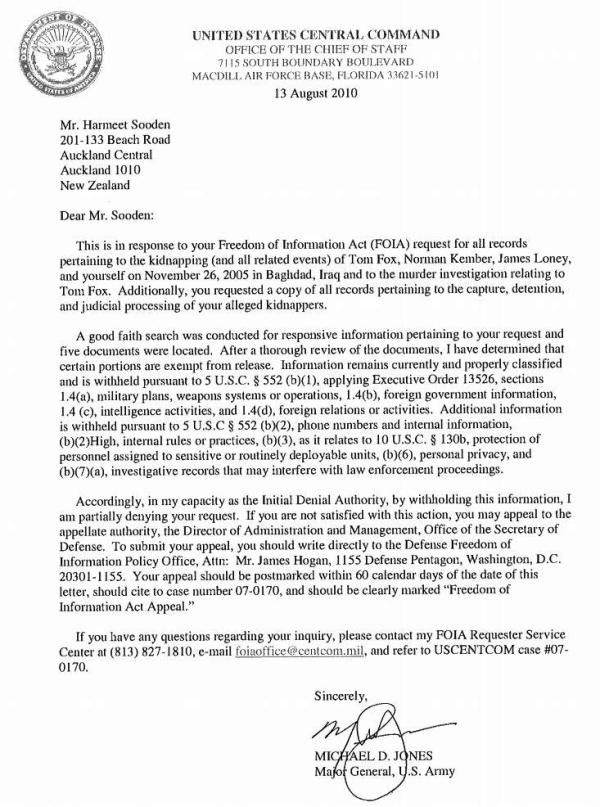
ENDS


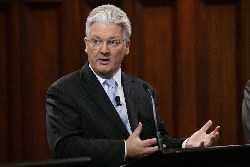 Peter Dunne: Luxon Gets Out His Butcher's Knife - Briefly
Peter Dunne: Luxon Gets Out His Butcher's Knife - Briefly Binoy Kampmark: Warring Against Encryption, Australia Is Coming For Your Communications
Binoy Kampmark: Warring Against Encryption, Australia Is Coming For Your Communications Gordon Campbell: On Fast Track Powers, Media Woes And The Tiktok Ban
Gordon Campbell: On Fast Track Powers, Media Woes And The Tiktok Ban Binoy Kampmark: Censorship Wars, Elon Musk, Safety Commissioners And Violent Content
Binoy Kampmark: Censorship Wars, Elon Musk, Safety Commissioners And Violent Content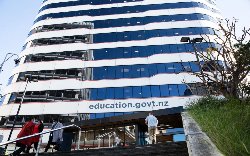 Gordon Campbell: On The Public Sector Carnage, And Misogyny As Terrorism
Gordon Campbell: On The Public Sector Carnage, And Misogyny As Terrorism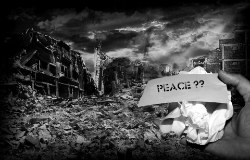 Ramzy Baroud: NATO’s Never-ending War: The 75-Year-Old Bully Is Faltering
Ramzy Baroud: NATO’s Never-ending War: The 75-Year-Old Bully Is Faltering